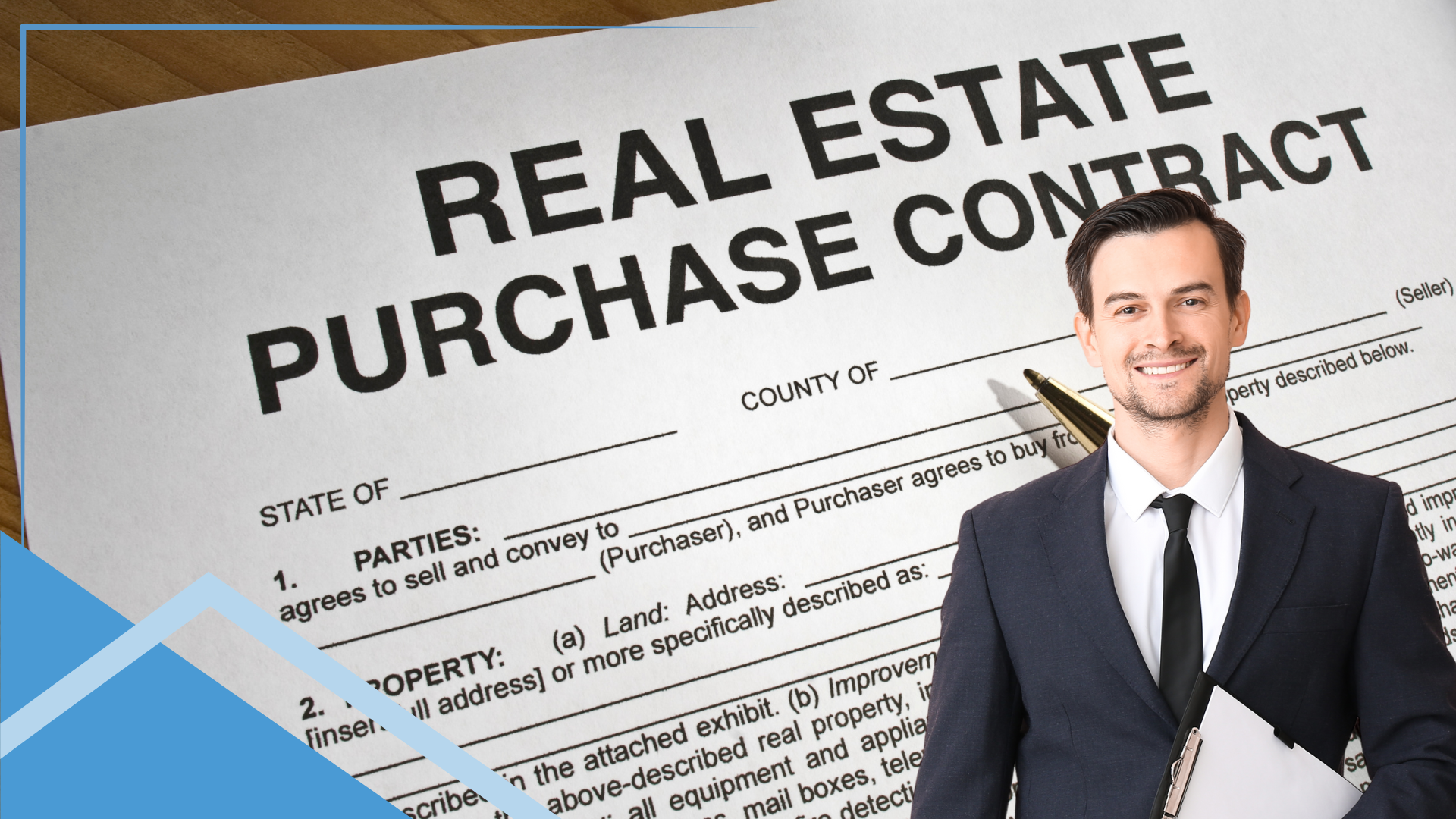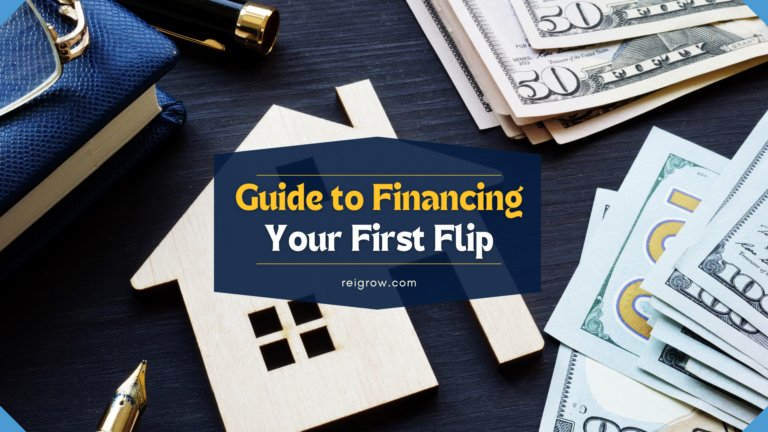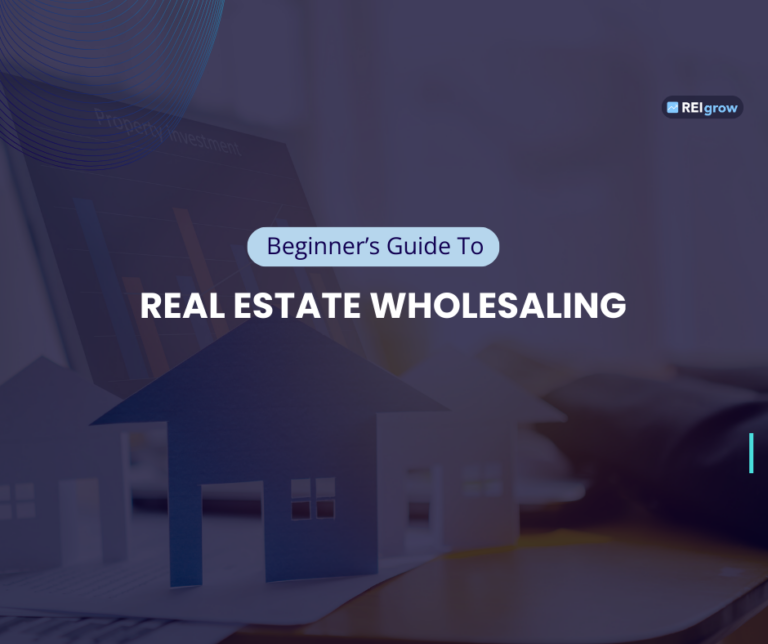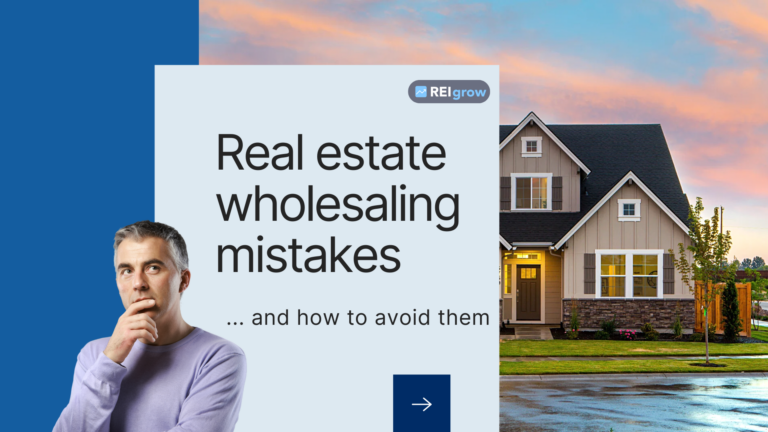Investor’s Guide to Real Estate Wholesale Contracts
A real estate wholesale contract involves a legal agreement between a distressed property seller and a wholesaler.
The contract outlines the terms of the sale of the property with the wholesaler aiming to assign it to another buyer for profit before the closing date.
This process allows wholesalers to make money without having to purchase the property.
Real estate wholesalers flip contracts to make profits in their target markets quickly. They essentially connect sellers with buyers for a fee.
How Does A Wholesale Real Estate Contract Work?
In this type of agreement, the wholesaler deals with a motivated seller to secure a property under contract at a discount.
Next, the wholesaler advertises the contract to potential buyers, typically other real estate investors, at a higher price to turn a profit.
When a buyer is secured, the wholesaler transfers the contract to the buyer, who finalizes the purchase with the original seller.
This process allows the wholesaler to facilitate the transaction without owning the property.
It’s a win-win situation for all parties involved in the real estate transaction.
Pros Of Wholesale Real Estate Assignment Contracts
Investors can swiftly grow their real estate investment portfolios with wholesale real estate assignment contracts. These contracts provide speed and flexibility in closing deals, making it possible to turn a profit quickly.
This real estate investing strategy involves significantly less upfront investment. It allows wholesalers to make money without needing much capital or a strong credit history.
These contracts also provide speed and flexibility in closing deals, making it possible to turn a profit quickly.
The market offers a variety of real estate wholesale deals, without the need to buy them outright, making diversification of real estate portfolios easy.
Overall, wholesale contracts are a smart way for investors to enter the real estate market.
Cons Of Wholesale Real Estate Assignment Contracts
One downside is the potential loss of control over the deal once you assign it to someone else.
There’s a risk that the new buyer might not follow through, putting you in a tough spot.
Main Components of a Real Estate Wholesale Contract
- Identification of Parties: The agreement identifies the wholesaler and the seller, including their contact information and any pertinent details about their respective roles in the transaction.
- Property Description: A detailed description of the property being secured under wholesale contract, including its address, condition, legal description, and any relevant features.
- Purchase Price: It’s typically lower than the market value to account for the wholesaler’s profit margin.
- Earnest Money Deposit: It’s a show of good faith, a down payment that solidifies your intent to purchase the property. This deposit is often non-refundable and serves as a sign of good faith.
- Assignment Clause: A provision allowing the real estate wholesaler to assign their rights and obligations under the contract to another party, typically an end buyer or investor.
- Inspection Contingencies: Any contingencies related to property inspections, such as the right to conduct a professional inspection or to withdraw from the agreement if certain conditions are not met.
- Closing Date: The transaction is expected to close by this date. The wholesale contract may also include other provisions for extending the closing date if necessary.
- Seller Disclosures: The wholesale real estate contract should state disclosures required by law or requested by the wholesaler, such as information about the property’s condition, history, or any known defects.
- Title and Closing Costs: From title insurance to closing fees, this section spells out who foots the bill. These terms are typically negotiated as part of the agreement.
- Contingencies and Termination: Even the best-laid plans can go awry on some occasions. Therefore, the contract should clearly state conditions under which either party may terminate the agreement, such as the failure to secure financing or the discovery of unforeseen issues with the property.
Frequently Asked Questions about Real Estate Wholesale Contracts
1. How Long Does a Typical Wholesale Real Estate Contract Last Before the Deal Is Closed?
A contract typically lasts for about 30 to 60 days before the deal is sealed.
This time frame allows for important steps like checking the property, securing funds, and finalizing the sale.
2. Is Real Estate Wholesaling Legal?
Yes.
Real estate wholesaling, often misunderstood, is a legal practice in the real estate industry.
It involves assigning a contract to buy a property to a third party for a fee, allowing the original wholesaler to exit the deal.
Follow the rules and regulations in your state to stay on the right side of the law.
Each state may have specific requirements for wholesaling.
3. Can Investors Wholesale Commercial Real Estate in the US?
Yes, you can wholesale commercial real estate in the United States.
While residential properties are more popular for wholesaling, the same concept applies to commercial properties.
4. Can The Seller Back Out of the Wholesale Contract?
Are you worried if a seller can bail on a wholesale deal?
In this setup, the seller agrees to sell to the wholesaler at an agreed price. But what if they change their mind? It could happen if a better offer comes along, personal issues arise, or title problems pop up.
Let’s break it down:
- Contract Rules: Once signed, sellers must stick to the real estate wholesale contract terms, just like any deal.
- Deposit Protection: If sellers bail for no good reason, buyers might get the earnest money.
- Legal Actions: If sellers dodge unfairly, buyers can use the law to enforce the contract or claim damages.
To safeguard yourself, add clauses in the contract for such situations. Get legal advice to secure your rights in case the seller tries to pull out.







